
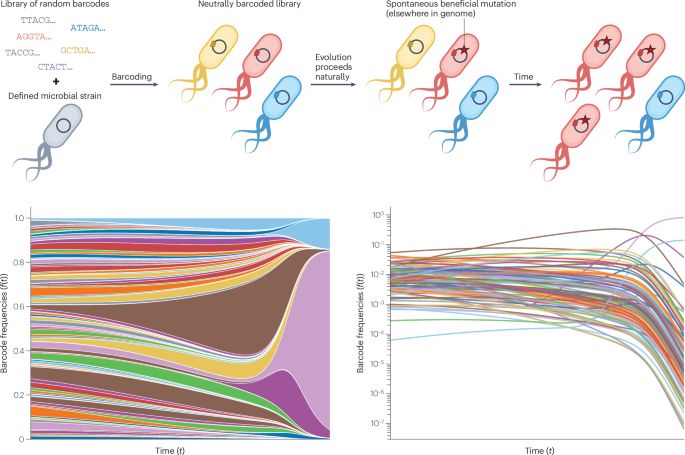
is accompanied by an especially thoughtful perspective by Carey Nadell and Chris Marx 👉🏽
www.science.org/doi/10.1126/...
is accompanied by an especially thoughtful perspective by Carey Nadell and Chris Marx 👉🏽
www.science.org/doi/10.1126/...
We show there is no close relative of Cutibacterium on the faces of gorillas and chimps at the Lincoln Park Zoo, furthering the mysterious origin of the dominant human skin colonizer.
journals.asm.org/doi/10.1128/...
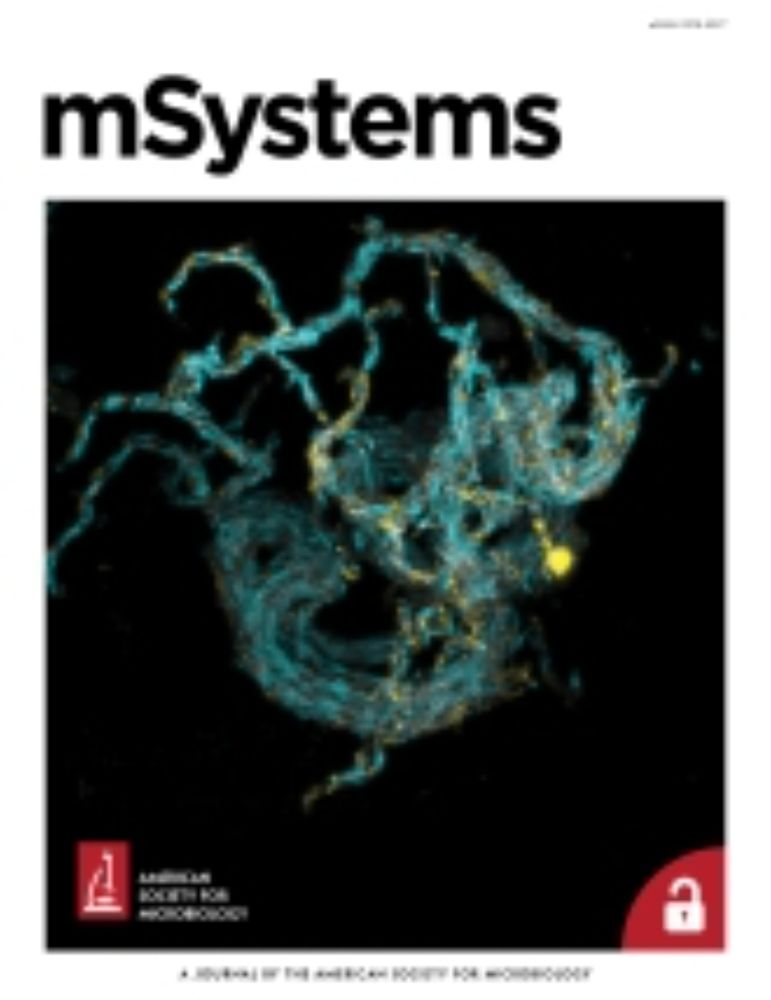
We show there is no close relative of Cutibacterium on the faces of gorillas and chimps at the Lincoln Park Zoo, furthering the mysterious origin of the dominant human skin colonizer.
journals.asm.org/doi/10.1128/...
In our new preprint, Divvya Ramesh combines microfluidics, microscopy and modelling to show that the benefits of gene loss are highly context dependent.
Check it out here: www.biorxiv.org/content/10.1...
In our new preprint, Divvya Ramesh combines microfluidics, microscopy and modelling to show that the benefits of gene loss are highly context dependent.
Check it out here: www.biorxiv.org/content/10.1...
We found that evolutionary rescue is possible—but it comes at the cost of mutualism. @jfriedman.bsky.social
#microsky #evosky #mevosky
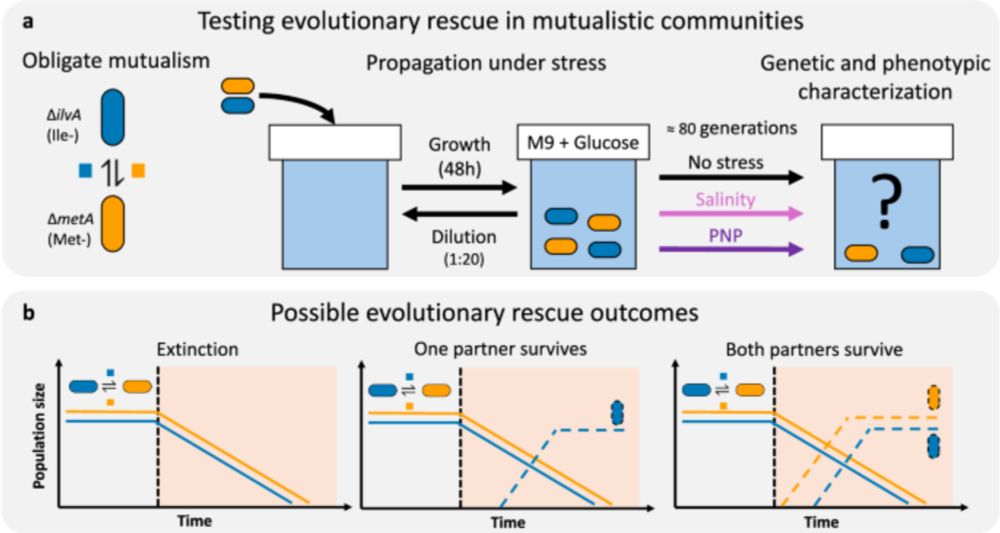
We found that evolutionary rescue is possible—but it comes at the cost of mutualism. @jfriedman.bsky.social
#microsky #evosky #mevosky

#ISMEComms by @mcastd.bsky.social, @padpadpadpad.bsky.social and Angus Buckling
academic.oup.com/ismecommun/a...
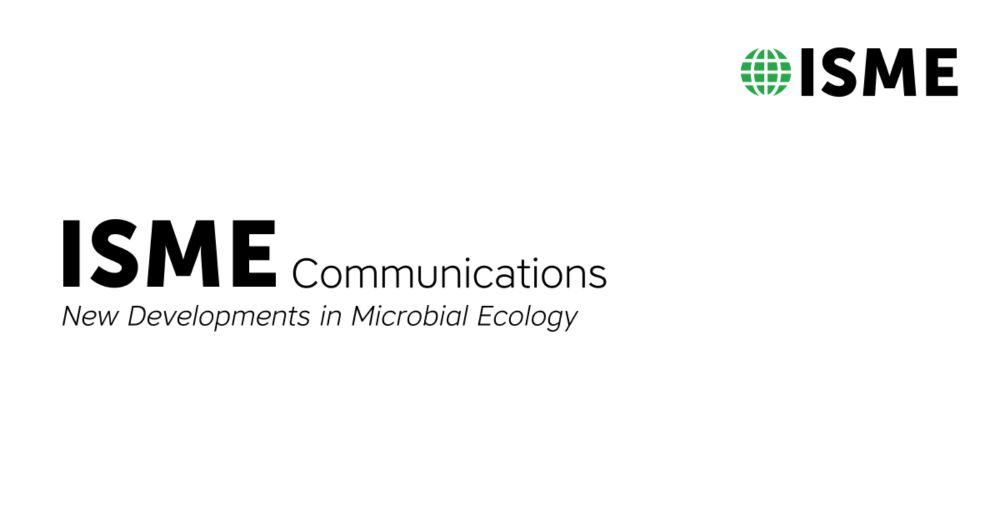
www.biorxiv.org/content/10.1...

www.biorxiv.org/content/10.1...
#MEvoSky
Link: bsky.app/profile/did:...
#MEvoSky
Link: bsky.app/profile/did:...
@kiranrpatil.bsky.social:
Obligate cross-feeding of metabolites is common in soil microbial communities
By Ghada Yousif @metagenomez.bsky.social with @swagatika.bsky.social @isamirgiri.bsky.social Sharvari Harshe et al.
www.biorxiv.org/content/10.1...
🧵👇

@kiranrpatil.bsky.social:
Obligate cross-feeding of metabolites is common in soil microbial communities
By Ghada Yousif @metagenomez.bsky.social with @swagatika.bsky.social @isamirgiri.bsky.social Sharvari Harshe et al.
www.biorxiv.org/content/10.1...
🧵👇
www.nature.com/articles/s41...

www.nature.com/articles/s41...
www.biorxiv.org/content/10.1...

www.biorxiv.org/content/10.1...

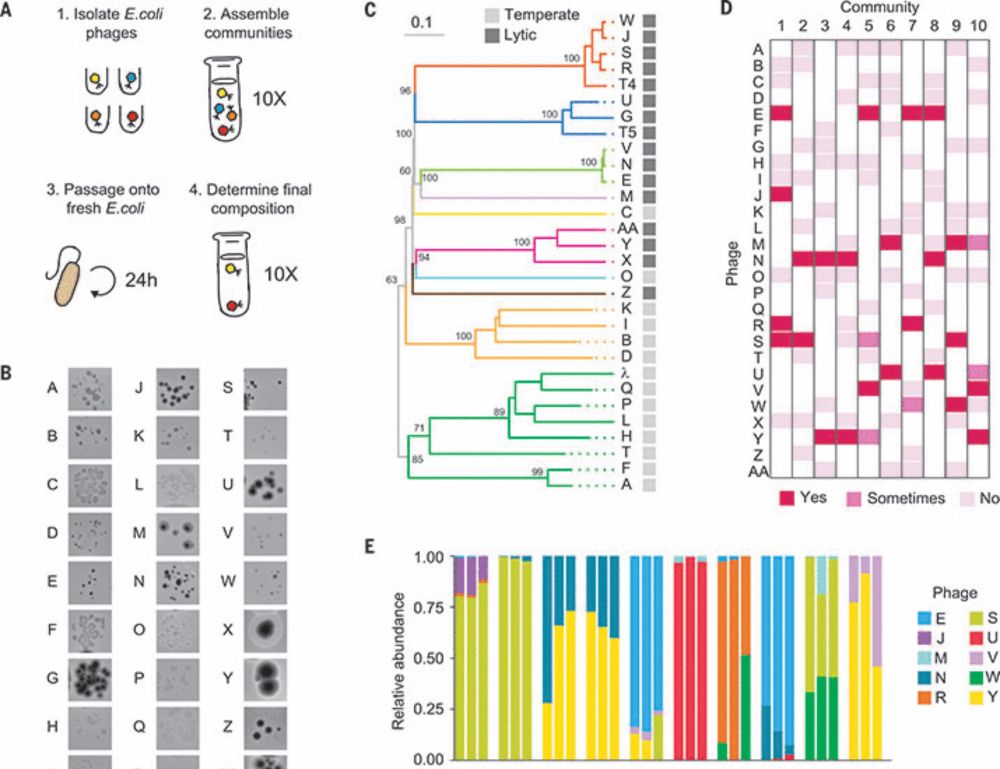

Does this change over the course of evolution?
Excited to share our work in PLOS Biology exploring these questions in the first 2 adaptive steps w/ Yuping Li, @gsherloc.bsky.social, @petrovadmitri.bsky.social 🧵
doi.org/10.1371/jour...
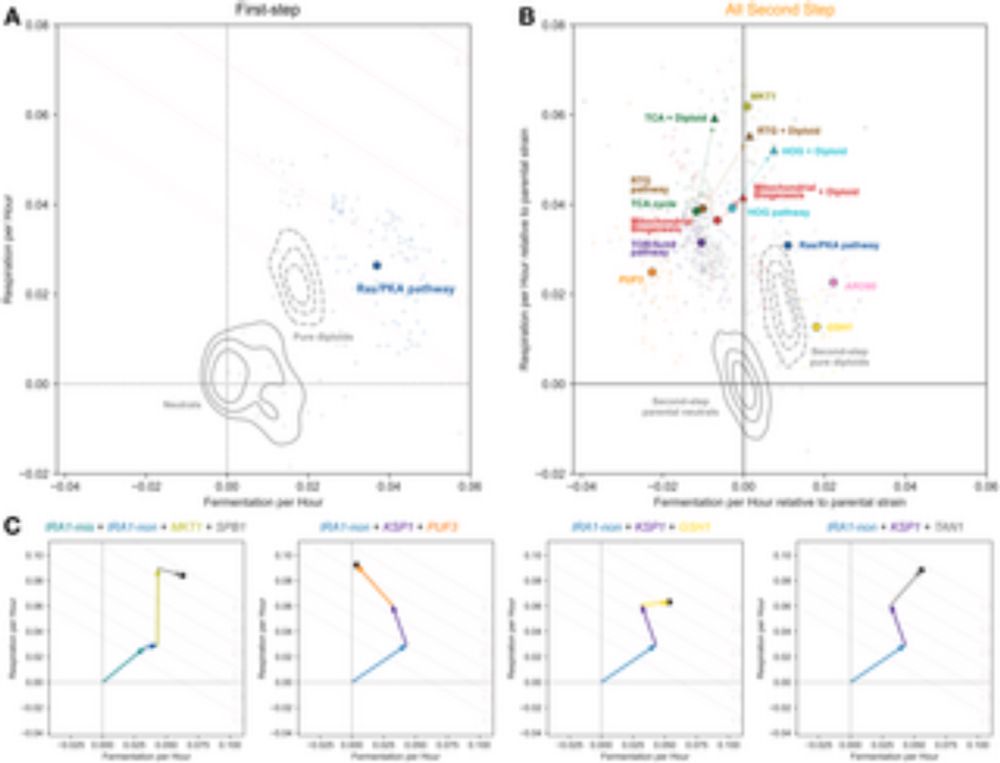
Does this change over the course of evolution?
Excited to share our work in PLOS Biology exploring these questions in the first 2 adaptive steps w/ Yuping Li, @gsherloc.bsky.social, @petrovadmitri.bsky.social 🧵
doi.org/10.1371/jour...
www.nature.com/articles/s41...

www.nature.com/articles/s41...
Agents of change: a partnership between mobile genetic elements facilitates rapid bacterial adaptation
#TrendsMicrobiol Spotlight by Elizabeth Duan, @oliviakosterlitz.bsky.social and Benjamin Kerr
on the Nat Eco Evo paper from @sanmillan.bsky.social group
www.cell.com/trends/micro...
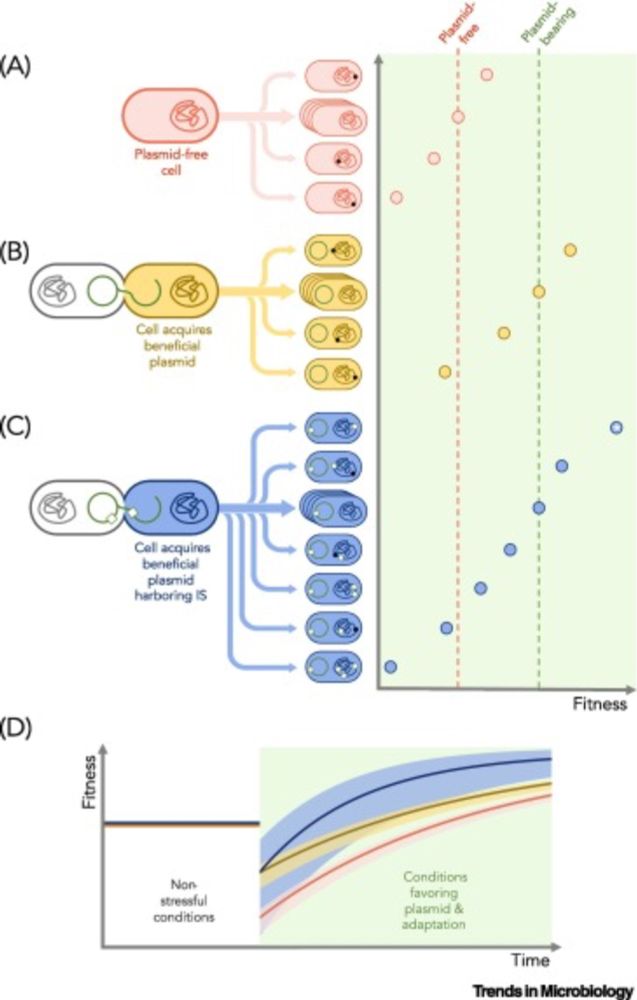
Agents of change: a partnership between mobile genetic elements facilitates rapid bacterial adaptation
#TrendsMicrobiol Spotlight by Elizabeth Duan, @oliviakosterlitz.bsky.social and Benjamin Kerr
on the Nat Eco Evo paper from @sanmillan.bsky.social group
www.cell.com/trends/micro...
www.sciencedirect.com/science/arti...

www.sciencedirect.com/science/arti...
www.biorxiv.org/content/10.1...

www.biorxiv.org/content/10.1...
www.nature.com/articles/s41...
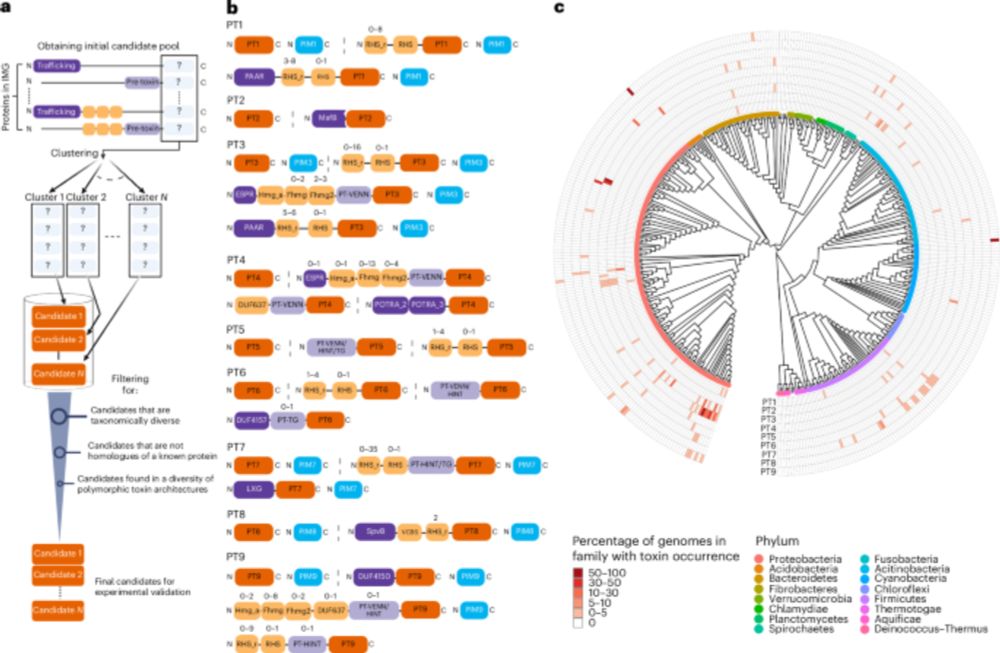
www.nature.com/articles/s41...
We show that the presence of another species doesn't necessarily influence evolution.
@jfriedman.bsky.social
authors.elsevier.com/c/1jxht8YyDf...
Thanks to the anonymous reviewers for their constructive comments!
We show that the presence of another species doesn't necessarily influence evolution.
@jfriedman.bsky.social
authors.elsevier.com/c/1jxht8YyDf...
Thanks to the anonymous reviewers for their constructive comments!

